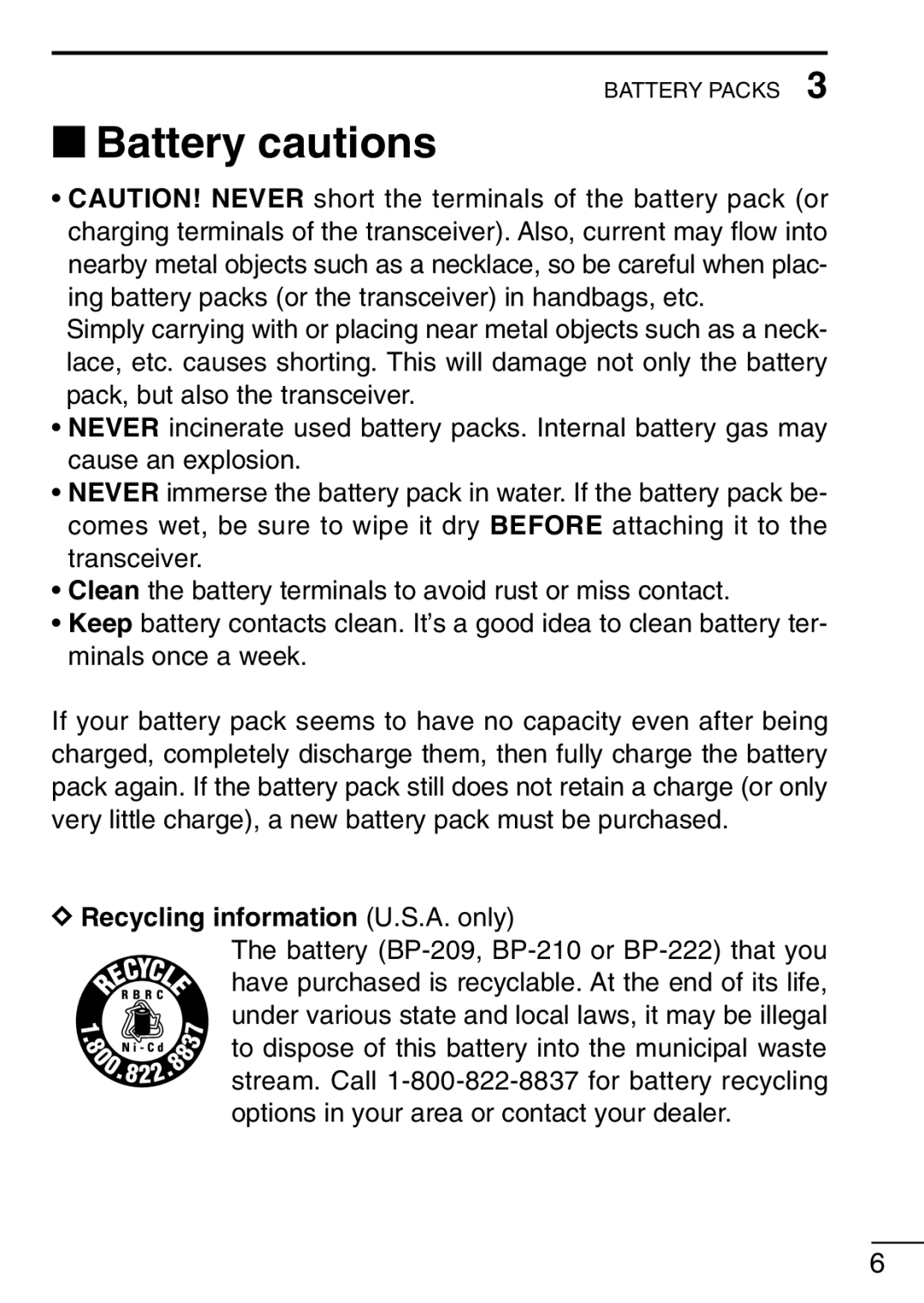
BATTERY PACKS 3
‘Battery cautions
•CAUTION! NEVER short the terminals of the battery pack (or charging terminals of the transceiver). Also, current may flow into nearby metal objects such as a necklace, so be careful when plac- ing battery packs (or the transceiver) in handbags, etc.
Simply carrying with or placing near metal objects such as a neck- lace, etc. causes shorting. This will damage not only the battery pack, but also the transceiver.
•NEVER incinerate used battery packs. Internal battery gas may cause an explosion.
•NEVER immerse the battery pack in water. If the battery pack be- comes wet, be sure to wipe it dry BEFORE attaching it to the transceiver.
•Clean the battery terminals to avoid rust or miss contact.
•Keep battery contacts clean. It’s a good idea to clean battery ter- minals once a week.
If your battery pack seems to have no capacity even after being charged, completely discharge them, then fully charge the battery pack again. If the battery pack still does not retain a charge (or only very little charge), a new battery pack must be purchased.
DRecycling information (U.S.A. only)
The battery
6
